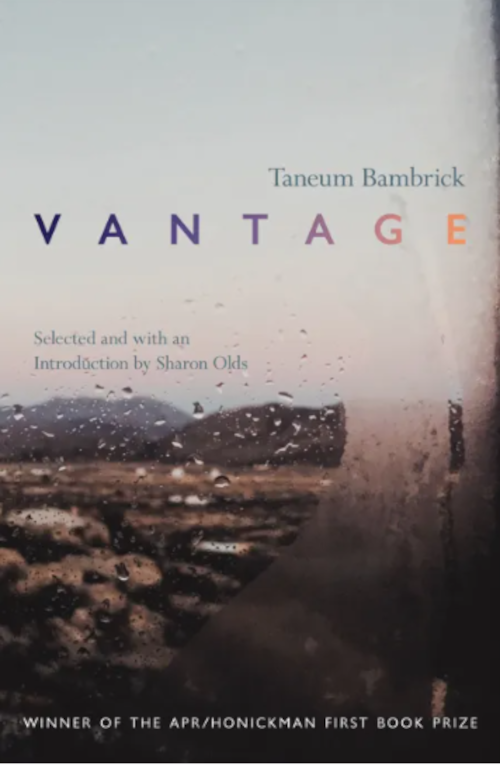A few minutes before a voice on the intercom signaled the end of the final day of the 2023 AWP conference in Seattle, Washington, I purchased one of the last remaining copies of Taneum Bambrick’s Vantage from the American Poetry Review. This feels somehow fated, looking back: that I would first meet this book here, 2,767 miles northwest of my apartment and just 137 miles from the town of Vantage, where the speaker of these poems—young, wild-haired, a “squirrely thing”—grew up and eventually secured a job on a maintenance crew of incredulous, sometimes vicious older men, cleaning up the area around the Wanapum Dam.
I am primarily a nonfiction writer, and I first described Vantage to friends and colleagues as “one of the most compassionate and immersive works of literary journalism I’ve ever read” (with several expletives added in for emphasis). I stand by this tagline, with the caveat that no tagline could hold all that Bambrick has achieved: a sweeping portrait across time of a community beholden to a single, monumental piece of infrastructure, a queer coming-of-age, a specific yet universal story of ecological death and climate resilience. This is a landscape where the drowned and concealed do not stay that way; monoliths crack and water levels fall, revealing what we’ve jettisoned, sacrificed, tolerated into obscurity.
But what keeps me reading and rereading this collection, aside from the precise, often stomach-churning imagery—the dead goats and halved snakes, maggots heaving, “the stink / generating its own heat”—and formal command of line and sound and shape, are the characters who populate this landscape. The men, the men. Bambrick pays them the close attention that reads, even when the prevailing emotion evoked is fear, like a radical act of love—the speaker is always implicated in the little intimacies and violences and betrayals and forgivenesses they unleash on each other. The collection is studded with narrative moments that crackle with tension and determination, condemnation and self-reproach.
Aside from my personal investment in thinking about place and the (gendered) politics of belonging, I love art that reminds me to pay attention, firstly, and secondly, to abide the contradictions in what I’m paying attention to. The poems in Vantage model all this and more. These are poems with an ethic—quiet but stalwart—and could only have been written by someone who has truly, deeply listened.




